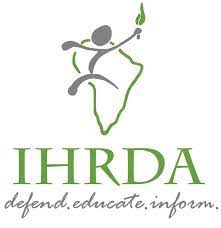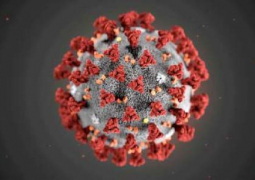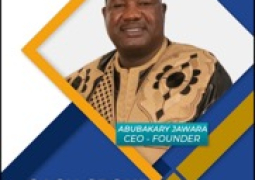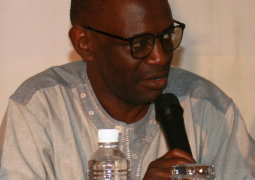
As part of this sensitisation workshop, IHRDA is also determined to provoke a situation that would help repeal or amend colonial laws that are considered bad laws in our constitution.
The event was supported by the Open Society Initiative for West Africa.
“So, this is meant to kick start a conversation as to how best we can to make sure that these colonial laws are either repealed or amended. IHRDA cannot repeal laws. We cannot amend laws. But we can bring stakeholders so that we can put our heads together to decide, really, the best way forward,” says Gaye Sowe, executive director, IHRDA.
The principal objective of the workshop was to equip participants with adequate information about the situation of petty offences in The Gambia and the opportunities for taking action toward decriminalisation, declassification and better policing of petty offences in the country, using regional human rights standards and best practices.
Upon completion, participants were expected to be well informed about the situation of petty offences in The Gambia; the decriminalisation of poverty from a human rights perspective, regional standards on the decriminalisation of petty offences and state accountability for decriminalising petty offences and its relevance for The Gambia.
“We do a lot of capacity building on the African human rights system. We are registered here because we wanted to be very close to the National Human Rights Commission (NHRC), but we are Pan-African in the sense that we cover the whole of the continent. So, we do so by building the capacity of strong actors, government and non-governmental agencies on the African human rights system,” Gaye Mr. Sowe said.
“By that we’re talking about the mechanisms and it is something we have been doing going back to 1998 when we were registered. But all of our capacity building for state officials, in some instances, civil society, we also do a lot of litigations. We have cases before all the regional mechanisms,” he added.
“Before the African court, we have two cases against The Gambia; the Kerr Mod Ali case and the other on right to Freedom of Assembly, Association, Public Order Act, before the African Commission. We have close to 10 or more cases against Congo Brazzaville, Congo DRC, Ethiopia, Sudan, Rwanda, Burundi and a host of others. We also have some cases before the ECOWAS Court against Nigeria, against Mali, against Benin and a host other countries.”
He added that they have recently filed a petition against Cameroun on child marriage and another against Nigeria on children accused of witchcraft.
“Why are we here? Of course, we are not here to take The Gambia government to court but pushing for law reforms is definitely one of our priorities. We all here knowing The Gambia has a constitution. Other than the constitution, we have the Women’s Act. We also have the Children’s Act. We know our constitution is supreme and that same constitution provides the right to freedom of movement. It provides for presumption of innocence, and of course, other than the constitution, we are also a party to a lot of treaties including rights to freedom of movement, the right to dignity, presumption of innocence etc.”
“Even though all these rights are guaranteed in our constitution, which we agreed earlier that is supreme, even though these rights are guaranteed in our African treaties we have ratified, in international treaties we have ratified, unfortunately, we have laws that do not speak directly to the provisions of our constitution. They also do not speak directly to treaties we have ratified. Some of these laws, unfortunately, target the marginalised people of our countries. They target the homeless, the poor and people who really are struggling to make a living.”
“We call some of these laws, particularly those in the Criminal Code and other laws, petty offences. The laws, generally speaking, are very vague. They couched in very, very general terms and studies have shown they are also discriminatory. If you look at the laws, there are laws we inherited from our colonial masters; they are colonial relics and unfortunately some of them are couched in very disrespectful terms.”
“Check sections 160, 166 to 169 in our Criminal Code. What do you see? Offences such as idle and disorderly, offences such as rogues and vagabond; and even if you look at our lunatic dimension, you would see terms such as idiots, imbeciles or whatever you might call it.
“Our Criminal Code was adopted in 1933 and along the laws we would be looking at today. But unfortunately, we really have not done a very good job making the adjustments that are necessary. So, we decided it is important we start looking into these laws; laws that send people to jail not because of what they did but because of a particular situation they found themselves in.
He added that it is like one gets arrested, prosecuted and possibly sent to Mile II, not because of a crime committed but because of an unfortunate circumstance one finds himself in. “As in you packed up, you are exercising your right to freedom of movement, and unfortunately, you are picked up because someone somewhere thinks that you are idle and disorderly. You are arrested because someone somewhere thinks that you are a rogue and a vagabond, even before you are being taken to court for your evidence to be heard.”
He made it clear that sending people who have committed these petty offences to Mile II would not solve any problem, but instead trying to get them skill, most especially those who are considered rogues and vagabonds, and education would be better. He relates the belief that if they are skilled, they would not have time to be idling and loitering around.
Mr. Edmund Amarkwei Foley, director of programmes, IHRDA, also argued that most of the petty offences should not have been something that people should be facing criminal sanctions for, and as such, should be removed from law books.




